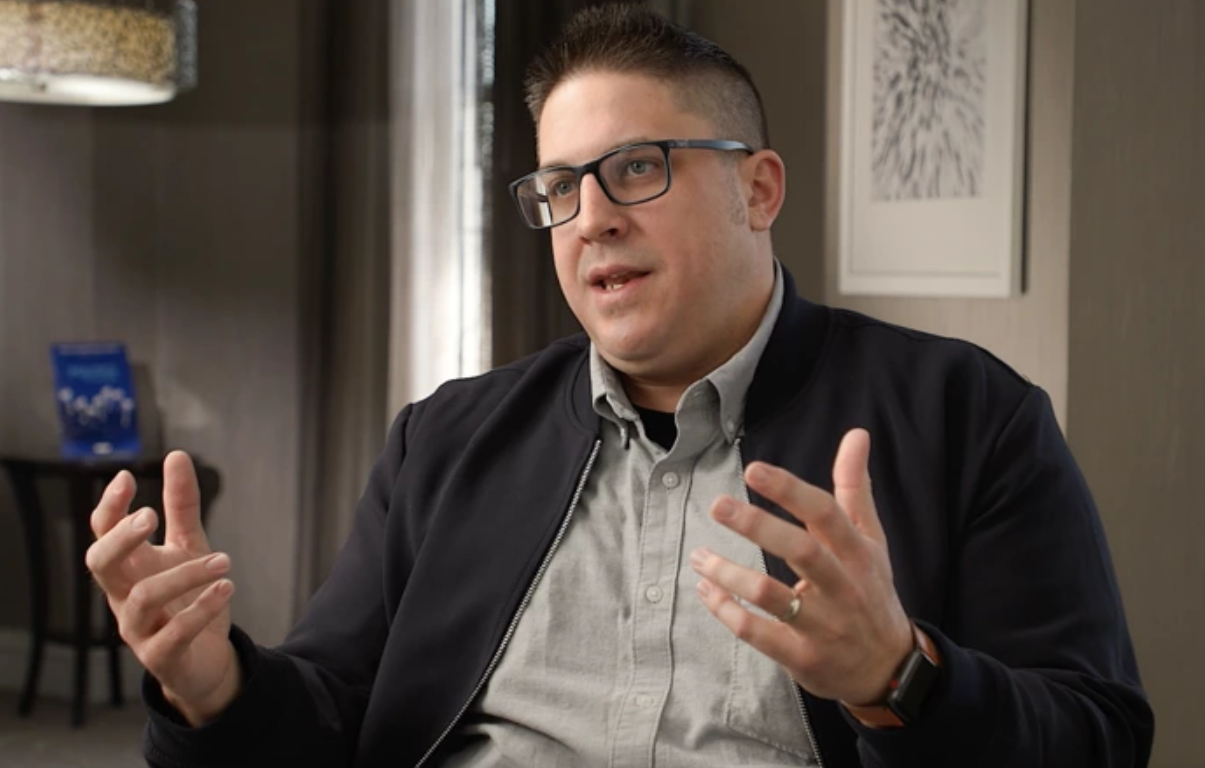Eric Swithin, founder of The Alliance for Ending the Fatherless Epidemic, believes that most of the issues permeating society can be traced back to fatherlessness, an epidemic he says the devil is using to undermine God’s plan for the world He created.
“God designed us to be a bottom-to-the-top program. We are designed to be family units that create more worshipers. As we have healthy families, we spread that health throughout the nation and throughout the world,” Swithin told The Christian Post.
“So let’s look at the enemy strategy. If we believe that God’s original plan is to create more worshipers and spread people who love Him throughout the planet … if I was Satan, I would go tear apart the house, I would take that out. And I would breed brokenness in that home that then breeds brokenness in those children, and so forth.”
“The enemy is also giving people a dramatically skewed perception of who God is,” he added. “If you don’t have a loving, tender, caring, nurturing, present Father, how could you possibly know a perfect, tender, nurturing, forgiving, redeeming, loving Father God?”
Motivated by the belief that the Church needs to be on the frontlines combatting the fatherlessness epidemic, Swithin created The Alliance for Ending the Fatherless Epidemic, a network of Christ-centered ministries across the U.S. who are committed to ending the fatherless epidemic through mentorship by sharing resources, ideas, best practices and wisdom. He also serves as the executive director of Outdoor Adventures, a camp ministry for fatherless youth.
A father of two biological children and seven unofficially adopted sons, Swithin believes mentorship is key to ending the issue of fatherlessness. He shared sobering statistics surrounding the fatherless epidemic: An estimated 90% of those in prison come from fatherless homes; fatherless young men are 279% more likely to carry a gun illegally and deal drugs; girls from a fatherless home are 900% more likely to be vulnerable to sexual abuse, and boys from a fatherless home are 14 times more likely to become a rapist.
“We can talk about poverty, education, mental illness, substance abuse, and on and on,” he said. “These are all traced back to a fatherlessness issue.”
About three years ago, Swithin felt God calling him to make a documentary confronting the issue of fatherlessness. The movie, “The Fatherless Epidemic,” can be watched for free on YouTube and challenges the Church to step up and address the issue in tangible ways.
“We still, as Christians, have the ability to breed healthy families and to raise our children to love God. But what about all those that don’t? Well, that’s where the Church gets to fill the gap,” he said. He referenced James 1:27, which challenges Christians to “look after the fatherless and widowed.”
“It’s not a suggestion,” he emphasized. “It’s the Church’s job to notice the single mom and to notice the fatherless amongst them in their pews. And once we get good at taking care of single moms in our church and fatherless kids within our church, then we go to step two, which is to go across the railroad tracks and start taking care of kids in broken places and dark spaces. And if we get good at that, we could also go overseas and do that too.”
For Swithin, his passion for ending the fatherlessness epidemic comes from a personal place. The product of a broken home, he had a strained relationship with his father as a young man, leaving him with an internal “gaping wound.”
“Because of that, I sought validation in all the wrong places,” he said. “You name it, I did it. I should literally be dead or in prison. After redemption through Christ, my deepest wounds, my deepest pains, the things from my past that hurt the most that God has healed me from, now are my greatest sources of compassion. I see myself in those kids that we’re going after.”
Swithin’s personal story is interwoven in the documentary: As an adult, he reconciled with his father, who was able to watch the film before he passed away last month after a brief battle with cancer.
“He said the proudest thing in his life was his kids and the accomplishment of being in that film,” Swithin said.
Since “The Fatherless Epidemic” premiered on March 31, Swithin said he’s seen fathers and children reunited, hurts forgiven and old wounds healed after watching the film.
“We had fathers repent and ask their kids for forgiveness for not being the dad that he could have been or should have been,” he said. “We’ve had tons of churches step up and say, ‘You’re right. We need to do something about this. We haven’t even really noticed the single moms in our pews on Sunday mornings and on Wednesdays.’”
And through “The Fatherless Epidemic” — and through his organization — Swithin hopes the Holy Spirit moves in the hearts of believers and challenges them to do their part in ending the crisis of fatherlessness across the U.S.
“We’re hoping that they’re going to engage in this mission, that the Church would no longer be a sleeping army, but it would be a Church that’s mobilized and ready to fill in the gap for those kids that need a positive, loving role model to point them towards a perfect Heavenly Father.”
Leah M. Klett is a reporter for The Christian Post. She can be reached at: [email protected]
Originally published on The Christian Post
(c) The Christian Post, used with permission




